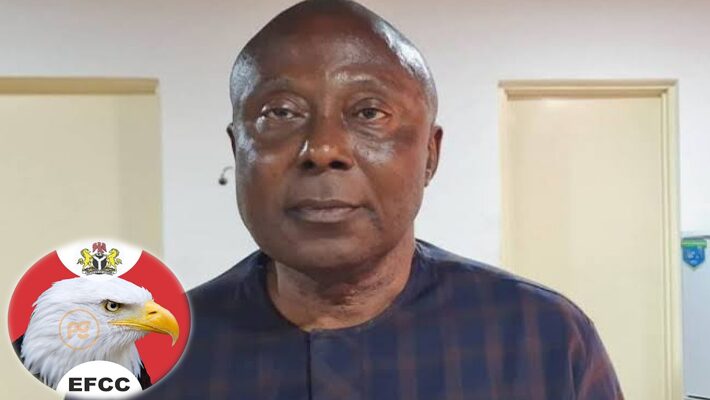According to the Central Bank of Nigeria (CBN) Money and Credit Statistics, credit to the private sector gained 6.68 percent from N30.65trillion in January to N32.8trillion in July 2021.
But analysts said the increase in the private sector has not manifested in increased output, lower inflation, lower interest rates, improved Purchasing Managers Index and stock market performance as well as job creation opportunities.
While describing the growth in credit to the private sector as laudable, analysts stressed that the impact would depend on the sectoral spread, quality of credit, tenure of the funds and interest rate.
Meanwhile, the CBN Money and Credit Statistics revealed that credit to the private sector crossed the N32 trillion mark in May and since then, maintained growth.
According to the CBN, credit to the government rose by 5.3 percent to N12.13trillion in July from N11.52trillion in June.
Analysis of CBN numbers showed that credit to the private sector in seven months of 2021 appreciated by N2.19 trillion, a development some analysts say showed deposit money banks supporting the apex bank in lending to the real sector and creating jobs.
Further analysis of the CBN Credit Statistics revealed that credit to the private sector hits a peak of N30.19trillion in July 2021 amid the ease in COVID-19 lockdown.
According to the CBN statistics, Money Supply (M3) increased to N39.79trillion in July from N38.78 trillion in January 2021, while Narrow Money rose by 2.15 percent from N15.95 trillion in January to N16.29 trillion in July.
Further review of the CBN statistics showed that Net Domestic Assets (NDA) rose to N44.97 trillion in July, an increase of five percent from N42.95 trillion in January this year.
Some analysts contended that banks lending to the real sector played a critical role in the recent increase in Nigeria’s Gross Domestic Product (GDP).
The National Bureau of Statistics (NBS) had last week announced that Nigeria’s real GDP growth for the second quarter (Q2) of 2021, came in at a 5.01 percent Year-on-Year (YoY) increase.
Announcing the GDP figures, the bureau said: “The YoY performance was mainly supported by the Non-oil GDP component, as it grew 6.7 percent y/y compared to the 6.1 percent YoY contraction in Q2:2020. This was on the back of the strong growth recorded in Trade (22.5 percent YoY), Transportation & Storage (76.8 percent YoY), and Manufacturing (3.5 percent YoY) activity sectors amidst full re-opening of the economy.”
Commenting on the impact of private sector lending to Small and medium-sized enterprises (SMEs), Head, Retail Investment, Chapel Hill Denham, Mr. Ayodeji Ebo opined that there has not been a major credit to SMEs aside from the government intervention.
Ebo said banks lending towards government bonds, and Commercial papers and corporate lending increased recently.
On his part, an Economist & Private Sector Advocate, Dr. Muda Yusuf said the growth in credit to the private sector is laudable, stressing that the impact would depend on the sectoral spread, quality of credit, tenure of the funds and interest rate.
He explained further that: “The CBN has done a lot in lending to agriculture, but the quality of the lending is an issue. Reports indicate high default rates in agricultural credit, especially the anchor borrowers’ scheme.
“Monetary intervention is imperative for real sector development. But it is not sufficient to guarantee the desired outcomes of growth and productivity. The context in which businesses are operating is as important as the funding, if not even more important.
“The totality of the investment environment must be right for sustainable real sector development to be achieved. Therefore, to complement the credit to the private sector, the other factors that should be reckoned with include infrastructure quality, especially power, roads and railways.”
He added, “There are also issues around the quality of the regulatory environment, the foreign exchange policy regime, the ports situation, volatility of the naira exchange rate, the tax environment and the security situation. These are not things monetary intervention can solve. It takes an impactful fiscal policy intervention to fix these problems.
“Some of the issues border on economic reforms that need to happen. Engagements between the private sector stakeholders and policymakers are critical to achieving sustainable development of the economy.”
Speaking from a different perspective, the President, Association of Capital Market Academics of Nigeria (ACMAN), Prof Uche Uwaleke said the increase has no noticeable impact on the real sector, which concerns the production, purchase, flow of goods and services.
He stated that “While inflation rate in June trended marginally downward, available evidence regarding the other metrics does not indicate any significant impact of the increase in private sector lending on the economy.”
He suggested that, “For impact to be noticeable, it needs to be sustained and scaled up, especially targeting critical sectors of the economy with job creation potentials such as SMEs.”
The Governor of CBN, Mr. Godwin Emefiele in his communiqué at the end of July’s Monetary Policy Committee (MPC) meeting said the committee noted that broad M3 declined to 2.02 percent in June 2021, compared with 2.99 percent in May 2021.
According to the CBN boss, “This development was largely driven by a slowdown in the growth rate of Net Domestic Assets (NDA) and Net Foreign Assets (NFA). Net Foreign Assets contracted by 3.65 percent due to the contraction of foreign asset holdings of the central bank, as well as non-interest, primary mortgage, and microfinance banks. The marginal decline in Net Domestic Assets reflected the slowdown in aggregate credit net, which decreased to 4.30 percent in June 2021, from 4.79 percent in May 2021.”
A member of the MPC and the Deputy Governor, Operations at the CBN, Folashodun Shonubi, in a statement had said, “Growth in credit to the government and credit to private sector reflected the impact of various measures by the CBN to promote the flow of credit to drive economic activities.”
Shonubi added that: “I believe the CBN’s interventions through the aggressive provision of credit should continue as a complement to the ongoing effort by the fiscal authority to boost economic activities.
“As the government act, more decisively to discourage bad behaviour and restore orderliness, we must collectively work to overcome the insecurity challenges. At the same time, we must begin to tighten to deal with the subtle monetary component of inflationary pressure and curb spiraling inflation, without suffocating economic growth.”
The apex bank in its statistics also disclosed that currency in circulation increased by nearly three percent from N2.74trillion in June to N2.81trillion in July.


 Naira4 weeks ago
Naira4 weeks ago
 News3 weeks ago
News3 weeks ago
 Education4 weeks ago
Education4 weeks ago
 Social Media4 weeks ago
Social Media4 weeks ago
 Technology4 weeks ago
Technology4 weeks ago
 Investment4 weeks ago
Investment4 weeks ago
 Dividends4 weeks ago
Dividends4 weeks ago
 Economy4 weeks ago
Economy4 weeks ago


























